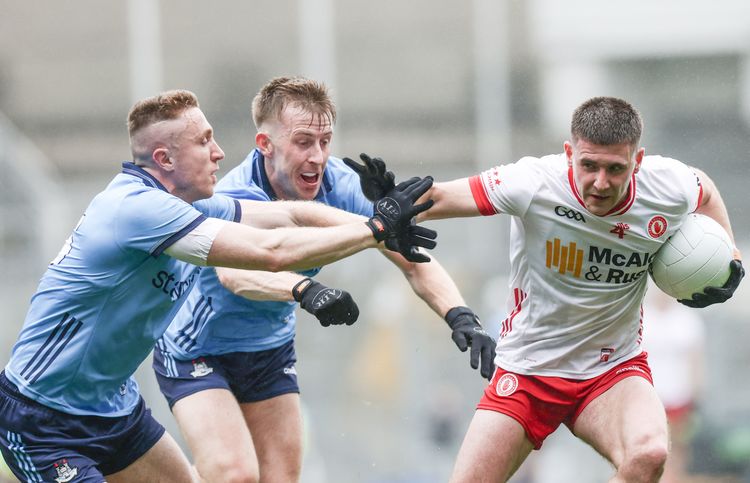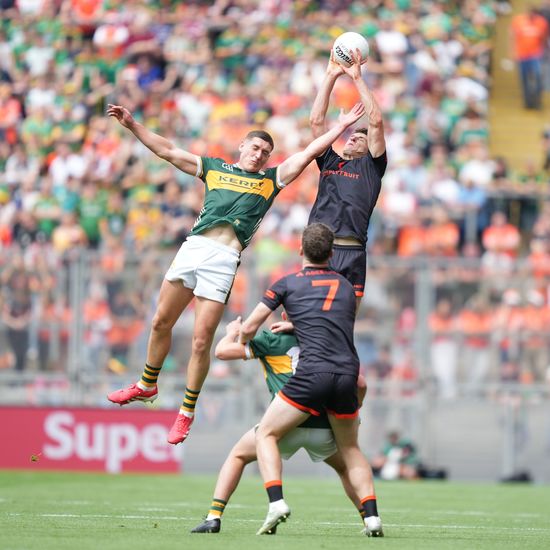By Peter McDermott
Highgate Cemetery in London is famous as the final resting place of Karl Marx. But Jimmy Burns (pictured above), a writer for the Financial Times for 30 years, would like it to be as well known for the grave of Irish footballer Patrick O'Connell. Currently, though, the latter plot is unmarked and abandoned.
"Moves are afoot to change that," Burns said in New York last week. Those efforts aim to involve FC Barcelona. The journalist believes the Catalans owe the Dubliner, who died in 1959 at age 71. For O’Connell, whose extraordinary resume included a spell with Manchester United and a successful captaincy of Ireland, was the fabled club’s manager during the Spanish Civil War. During that conflict, he took his squad on a tour to Mexico and the United States, which included beating four teams in New York -- Irish, Jewish and Hispanic teams and a U.S. “selection.” Before it was all over, more than half of the players had successfully applied for political asylum.
Irish soccer has been on Burns’s mind of late, if only to provide some welcome relief during the European Championships, which finished on Sunday. “With the exception of the game against Ireland, which they [Spain] clearly dominated, I've found it a nerve-wracking tournament,” said the author of “La Roja: How Soccer Conquered Spain and How Spanish Soccer Conquered the World.”
He was born in Madrid in 1953 to a woman from that city; his parents met when Tom Burns was working in the British embassy during World War II. “My mom remained a lifelong Madridista,” he writes, “and to her dying day could never understand why my loyalties were never permanently anchored in the Bernabéu [Real Madrid’s stadium].”
He blames that partly on the fact that Mabel Maranon never brought him to the stadium; but she did take him to bullfights. “La Roja,” his seventh book, tells of how soccer displaced that quintessentially Spanish activity in the hearts of the people. Burns, who straddles Castilian, Catalan and British cultures (he was educated by the Jesuits at Stonyhurst College in Lancashire), is in a good position to relate the story.
Part of it belongs to Alfredo Di Stéfano, the mostly Italian, but partly Irish, Argentine-born superstar who helped Real Madrid win five consecutive European Cups from 1956. Burns, however, became a Barcelona fan thanks to the Dutch genius Johan Cryuff, the second greatest player of all time in many people’s minds after Pelé. And so did the writer’s friend Ardal O’Hanlon, the Irish actor (Fr. Doogall in “Father Ted”) and stand-up comic who is part of the narrative in “La Roja.”
After leading Ajax Amsterdam to the European Cup title three years running, Cryuff moved to Barcelona in 1973 with his young family (he has mainly lived there since) and immediately revived the club’s fortunes. It was a significant period in the history of Catalonia and Spain – the last days of General Franco’s rule. Later, in 1992, he was manager when it won its first European Cup.
Pep Guardiola, who was brought into the team as a young player 20 years ago by the Dutchman and was until recently Barcelona manager, ran the club with Cryuff-like aphorisms such as: “Without a pass, there is no ball control. Without ball control, there is no Barca.”
Teamwork, passing and technical skill are the keys to Spain’s success, said Burns. Speaking the day after the semifinal victory on penalties over Portugal and before the 4-0 win in the final over Italy, he said: “Whatever happens, they’ll continue to be the best in the world for some time to come -- simply because of the strength of the clubs.”
As for the continuing British and Irish failure to make an impact, he said: “It’s an easy thing to say in an economic crisis, but if you think sport is important for young people, and I think it is, then you've got to invest hugely in sport development and in soccer in terms of proper facilities and professional coaches.
“But, it's not just the volume of coaches, it's how you teach. It's not just football -- it's a whole philosophy,” he said.
“Yesterday’s game was a clash of philosophies: it was Ronaldo vs. Spain,” Burns said, referring to the Portuguese star.
He flew back to Europe to watch with his two daughters Spain become the first country to win three consecutive major soccer championships, making it one of the greatest ever international teams in history. The nation has come a long way since “eccentric Englishmen and courageous Irishmen,” as the author puts it, helped establish soccer there.
Foremost among them was O’Connell, who 98 years ago, captained his country to the Home Championship. The Irish beat Wales and England and drew with Scotland just months before the outbreak of World War I. He went on to a remarkable managerial career that took him to Spain in the 1920s, ’30 and ‘40s.
Said Burns: “It was still at a time when they [the Spanish] were very dependent upon enlightened foreign missionaries to show them the ropes.”
“La Roja” ($16.99) is published by Nation Books.
PHOTO BY PETER MCDERMOTT










